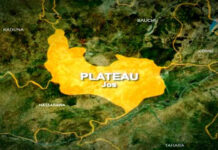Amnesty International, Nigeria, has asked Borno State Governor, Babagana Zulum, not to close Internally Displaced Persons (IDPs) camps in Maiduguri, the state capital.
The state government had hinted on plans to shut down IDP camps within Maiduguri by December 31, 2021.
Amnesty, in a statement by its spokesperson, Isa Sanusi, said it was deeply concerned about the planned closure, fearing that forced resettlement of IDPs could endanger lives of about 10,000 households.
It said most of the resettled areas were still being attacked by Boko Haram and ISWAP terrorists.
Survivors, according to the rights group, said they feared for their lives as they are being forced to leave the IDP camps with short notice and many are coerced to remain in resettled areas despite escalating attacks.
Amnesty said its findings were based on 38 interviews with former IDP returnees and individuals currently living in IDP camps within Maiduguri.
“Most of the resettled IDPs that Amnesty spoke to, have little or no access to essential services like drinking water, healthcare, sanitation and live in extreme poverty. Inadequate housing and lack of job opportunities in resettled villages have further compounded their sufferings.
“At least 41 people died in early October 2021 during a cholera outbreak in the resettled camp in Shuwari, Jere local government area while 20 older people and 21 children were killed by the disease,” Amnesty said.
It also said under international humanitarian law, Nigerian authorities could only order the displacement of a civilian population if the security of the civilians involved or imperative military reasons so demand.
Osai Ojigho, Country Director, Amnesty in Nigeria, said: “Returning displaced persons forcibly to villages that are not safe would be in violation of the Nigerian government’s responsibility of protecting the right to life of civilians.
“Most displaced persons barely escaped from Boko Haram’s campaign of killings, abductions, looting and torture, or from the attacks, extrajudicial killings or torture in unlawful detention by the Nigerian military.”











